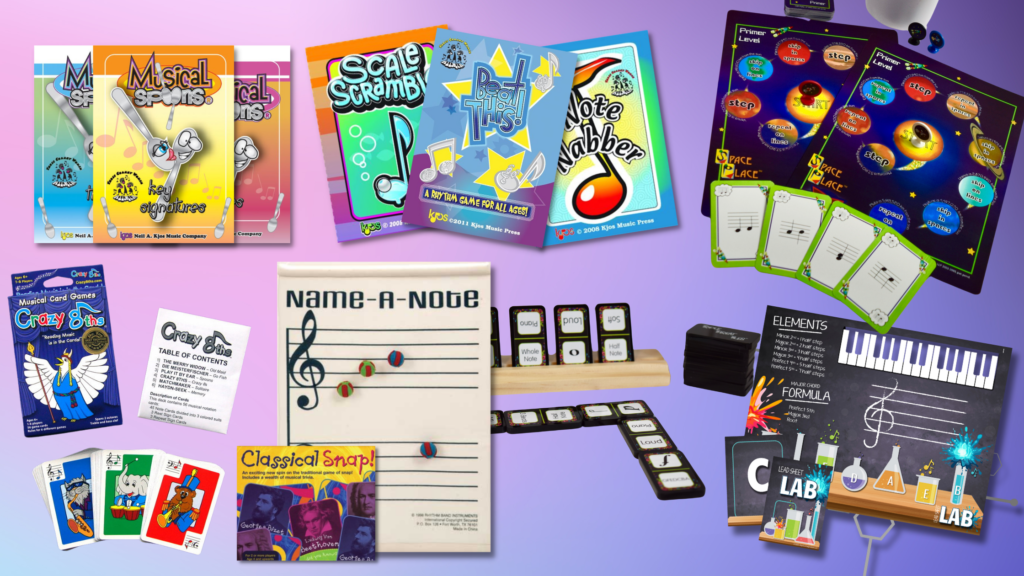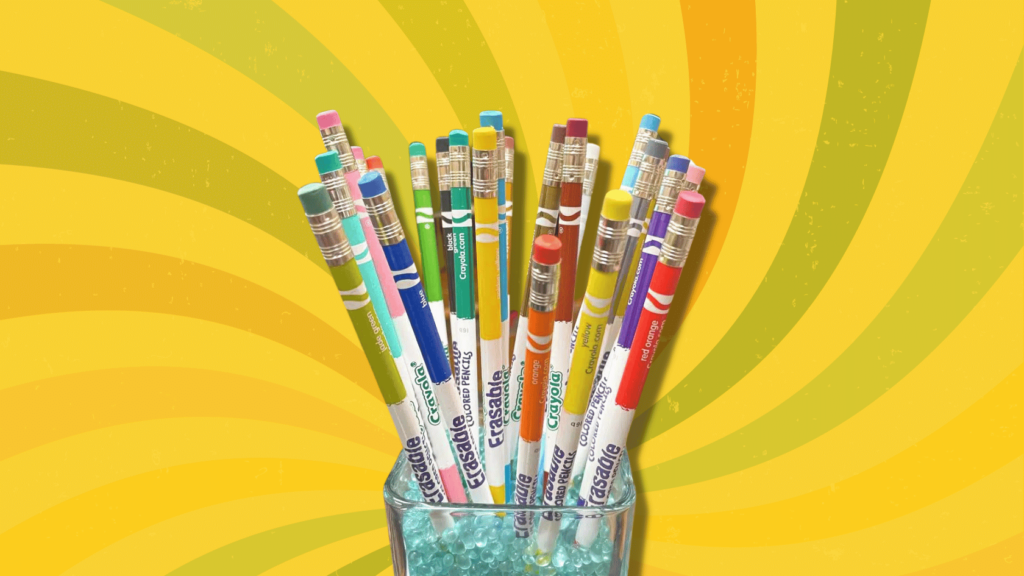Music lessons can be fun and engaging with the right tools. Fortunately, there are many options on the market for games and resources that can make your teaching more dynamic. Here are just a few of our favorites:
NoteWordy – Keys to Imagination
NoteWordy is a quick and easy (not to mention fun!) way to reinforce note learning. In Level 1, each student gets a game board with a three-letter word made up of letters from the music alphabet (e.g., ace, fed, bag, etc). The game includes two decks of playing cards—one for staff notes and one for keyboard notes. Depending on your students’ needs, you can use either or both decks.
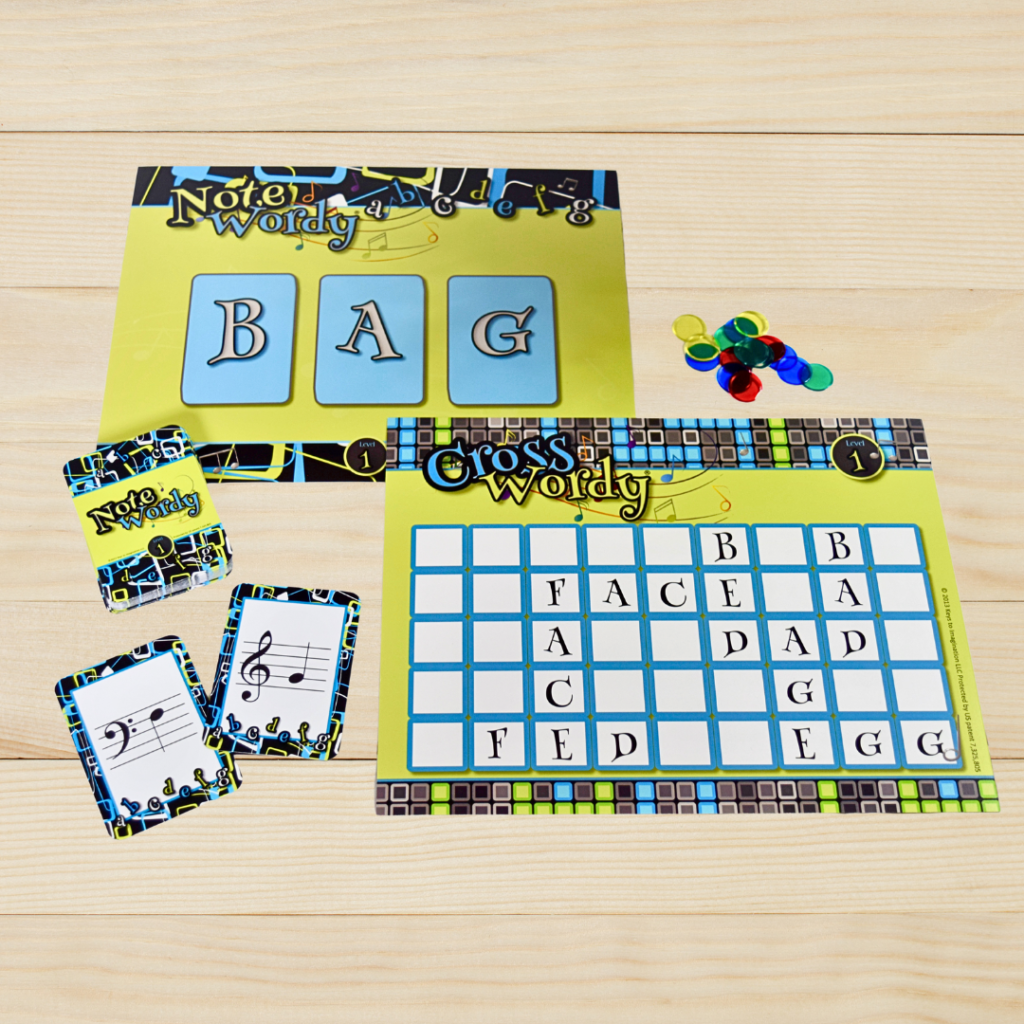
Students take turns drawing note cards and try to match them to the three-letter word on their gameboard. The first person to complete a word wins! With each higher level, students learn a larger range of notes on the staff and complete bigger words.
Want another game? Flip the game board over and play CrossWordy! This game has a similar objective but involves more words, provides more opportunities to earn points, and requires more strategy to beat your opponents.
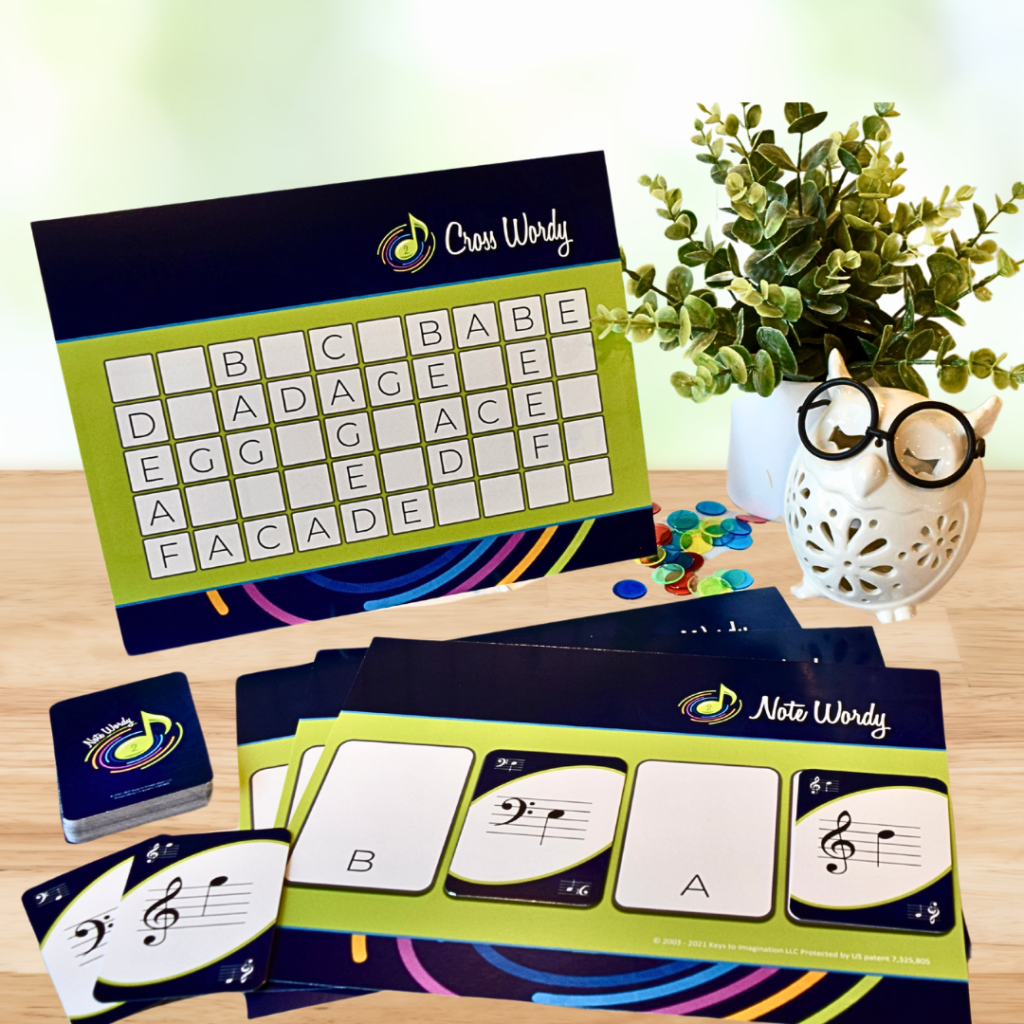
The best thing about Keys to Imagination games is that they can all be played with as few as two players (perfect for one-to-one lessons OR groups), and speed is never the primary skill needed to win, making it possible for all students to have an equal chance for success.
Triple Threat Tiles – Keys to Imagination
Another fantastic game from Keys to Imagination is Triple Threat Tiles. This domino-style game cleverly reinforces key signatures (or music terms and symbols, depending on the version you buy).
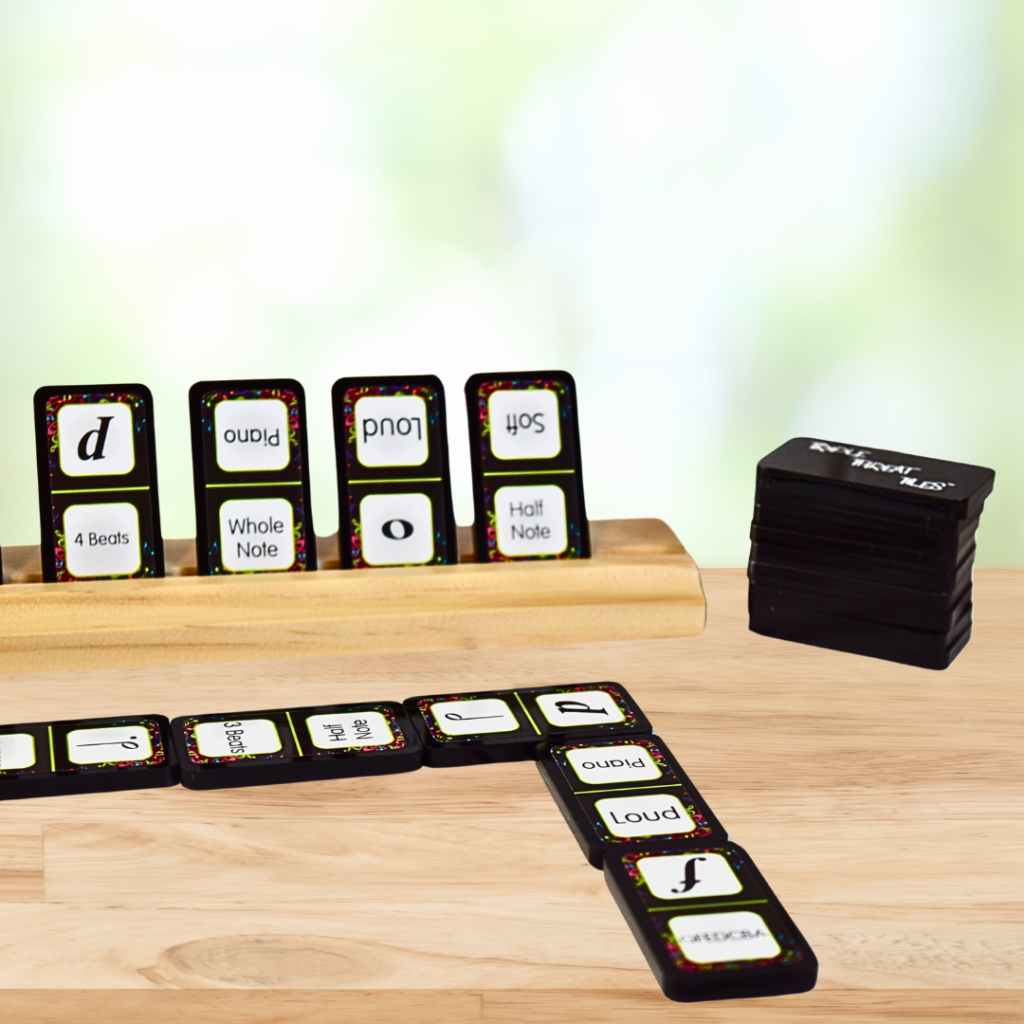
Students take turns making matches to build a domino train while seeing if they can be the first person to get rid of all of their tiles. We love this game because it focuses on two topics our students often struggle to remember: key signatures and music symbols.
Kjos Card Games
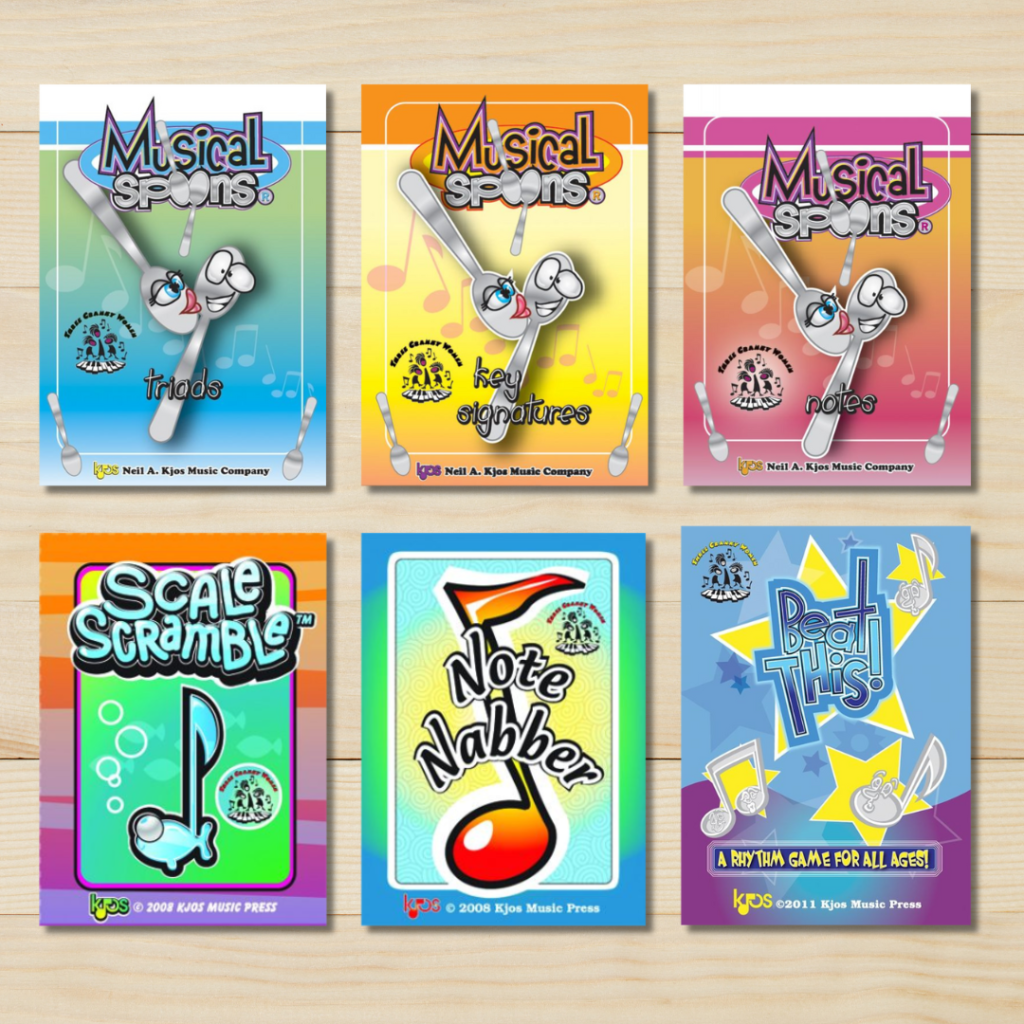
Kjos Music Company offers a variety of options when it comes to music education card games:
Musical Spoons is a twist on the traditional spoons game that will have your students learning notes, key signatures, triads, and more.
Scale Scramble involves students frantically trading cards while trying to be the first to acquire all the degrees of a scale.
Note Nabber is all about racing to collect the entire music alphabet while dodging fellow note “Nabbers” who might try to steal cards.
Beat This! requires students to build measures in specified time signatures and cast spells with “Rhythm Wizard” cards, forcing other players to perform hilarious actions!
Crazy 8ths
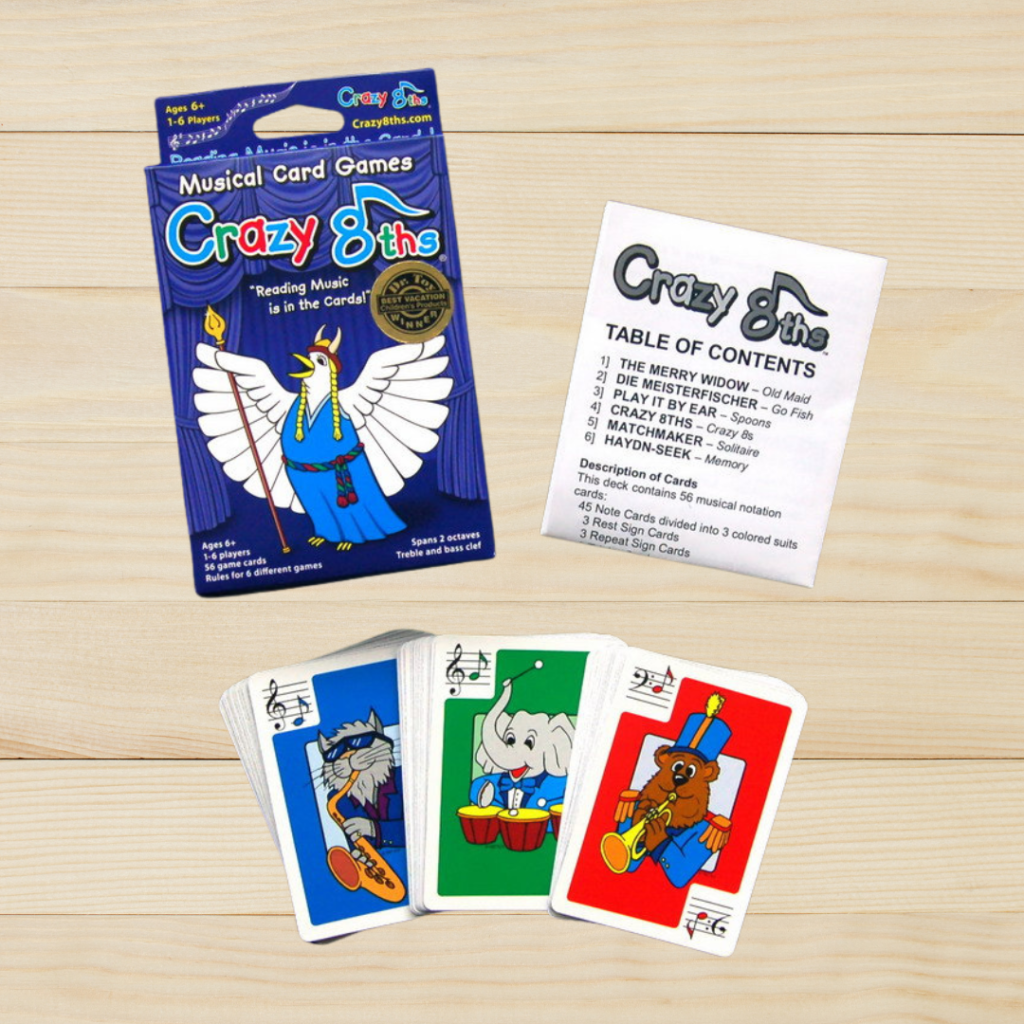
Crazy 8ths is a versatile note-learning card game that can be modified for six different gameplay options! The variations include games based on Old Maid, Go Fish, Spoons, Crazy 8ths (similar to UNO), Solitaire, and Memory. The deck contains notes from Bass Clef C through Treble Clef C. An expansion pack called Totally Treble can be purchased to add three full octaves of the treble clef.
Rhythm Riot – Keys to Imagination
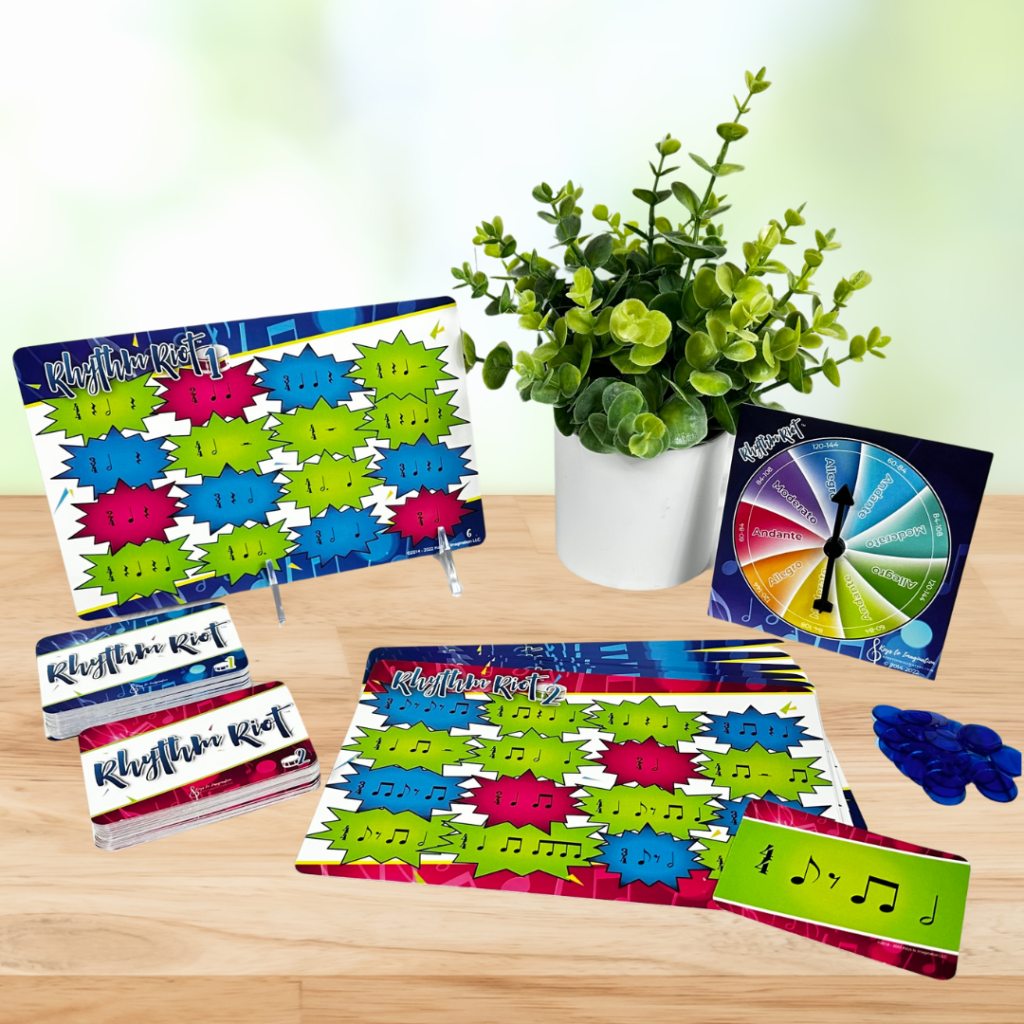
Rhythm Riot is similar to bingo, but it’s so much more than that! Students not only have to match rhythms to the ones on their game board but also have to perform the rhythms, either by clapping, tapping, or using musical instruments. But there’s more! Students spin a spinner to determine their performance tempo when clapping. You can make this game more challenging by requiring students to identify each rhythm by listening rather than looking at the cards. This game is great for two or more players and can be played in classes of up to 30 students. In addition, you can buy digital files to display the rhythm cards on large screens.
Card of Doom – Susan Paradis Games
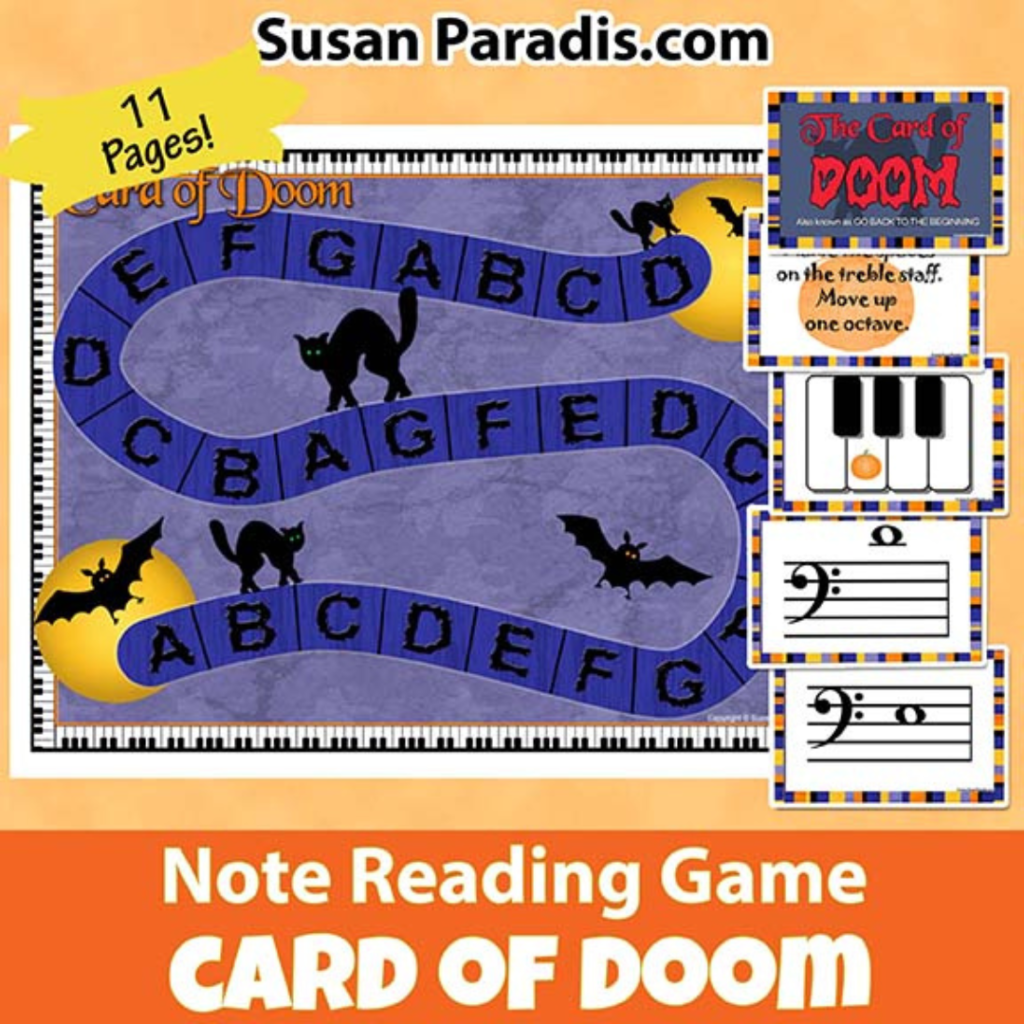
Susan Paradis is the queen of seasonal/themed music games, and you can find games on her website for just about any holiday or topic. We wanted to mention Susan’s games because we use some of her resources and find them effective and easy to use. Although you’ll have to download her products and print/laminate them yourself (or use a tablet), these games address a wide variety of concepts, and most of them can easily fit into a few precious minutes of your lesson time. One of our favorites during the Halloween season is Card of Doom, which has students naming notes to travel around a spooky game board. If students draw the card of doom, they’ll have to go back to the beginning!
Space Place – Keys to Imagination
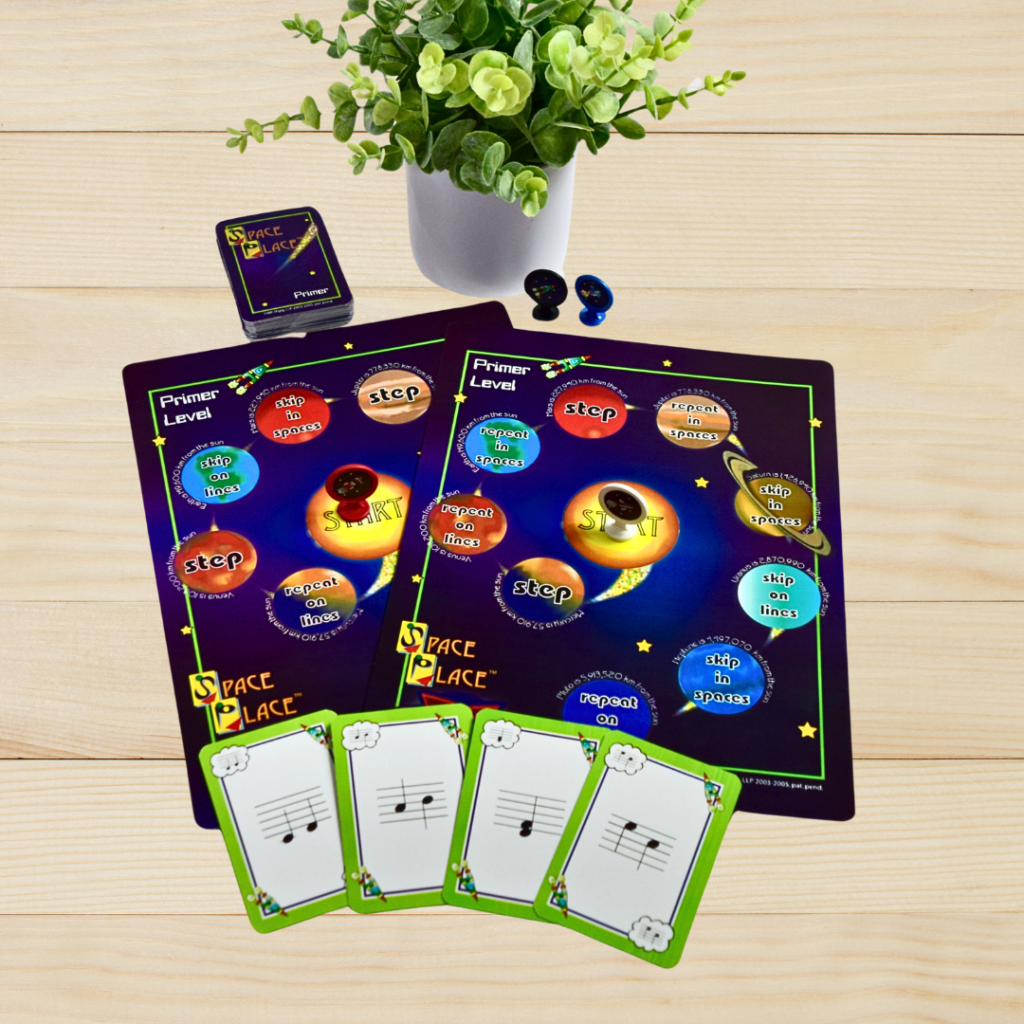
Space Place has students rocketing from one planet to the next to learn music intervals. The primer level focuses on distinguishing the difference between steps, skips, and repeating notes. In Level 1, students learn intervals through the 5th. And, in Level 2, they learn intervals through the octave. Our students love that they each get a rocket ship game piece to move through the solar system. This game also gives them an excellent opportunity to review the names and order of the planets. Yay for cross-curricular learning!
Classical Snap
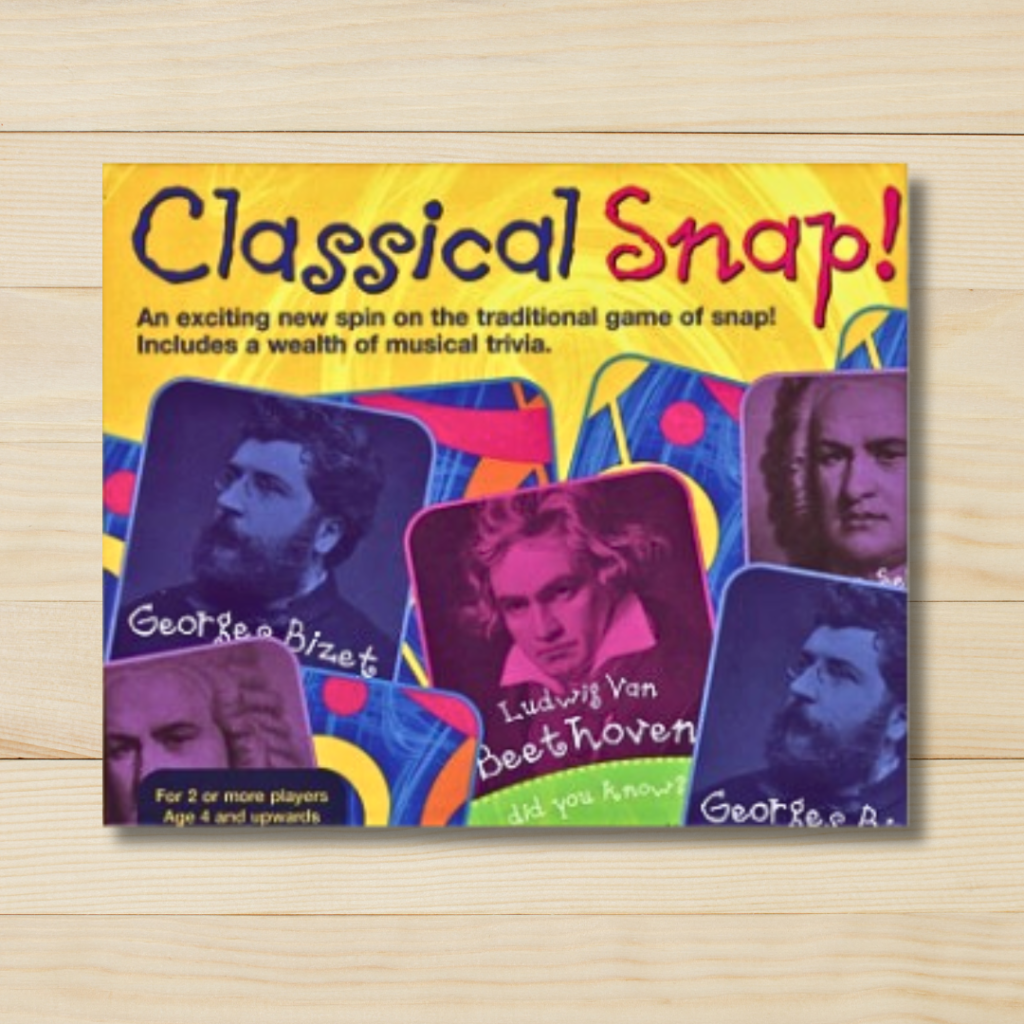
This exciting game will help your students learn to identify composers by their names, pictures, and unique personal facts. There are two gameplay options that utilize the 52 cards. It can be played as Memory (they call it Classical Pairs) or Classical Snap. We’ve found very few games that help students learn to identify and pronounce the names of composers, and this one works great!
Name-a-Note – KidsPlay
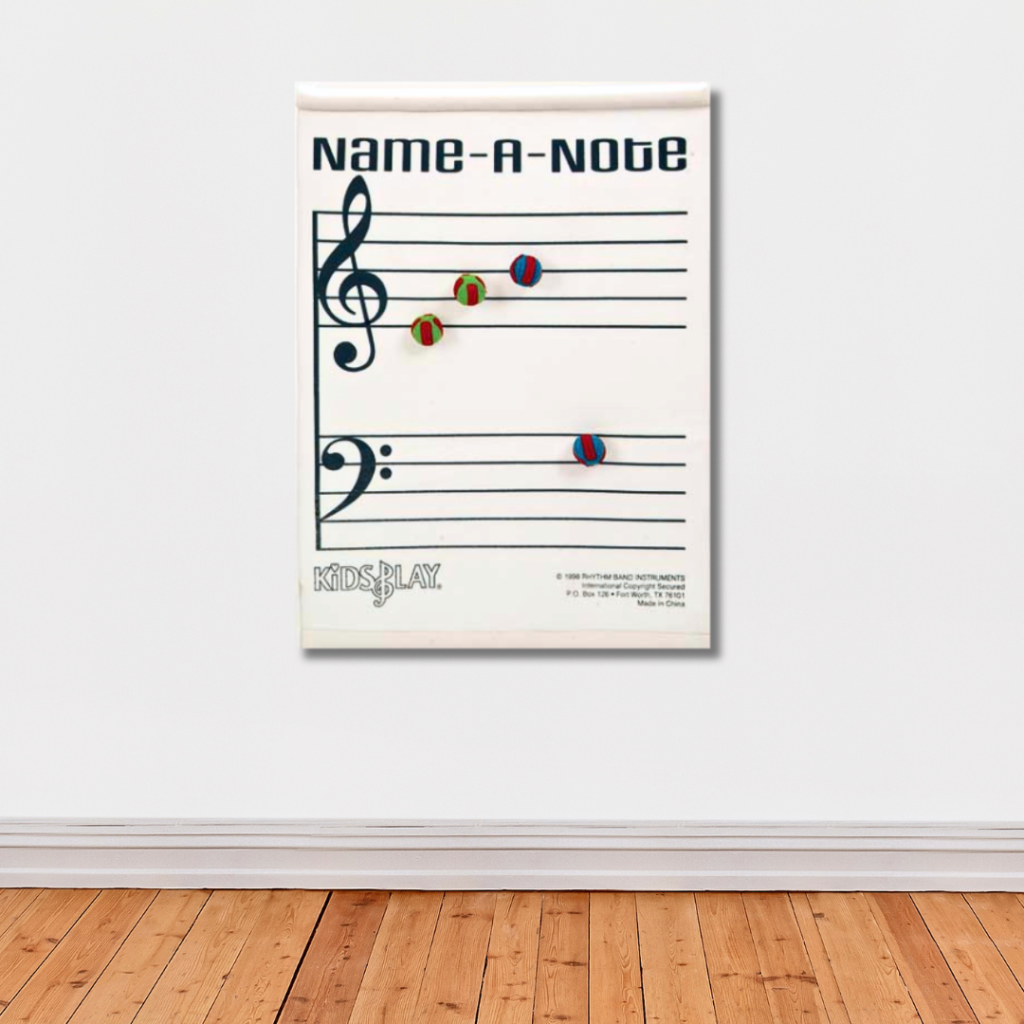
For some students, movement = learning. And let’s face it, even piano teachers need to get up from the piano now and then—says my aching back. Name-a-Note literally has students throwing things to learn notes and music symbols. It’s as simple as having students toss velcro balls onto the wall hanging and then having them name the note or symbol. This game is also great to take outdoors when the weather is nice!
Lead Sheet Lab – Keys to Imagination
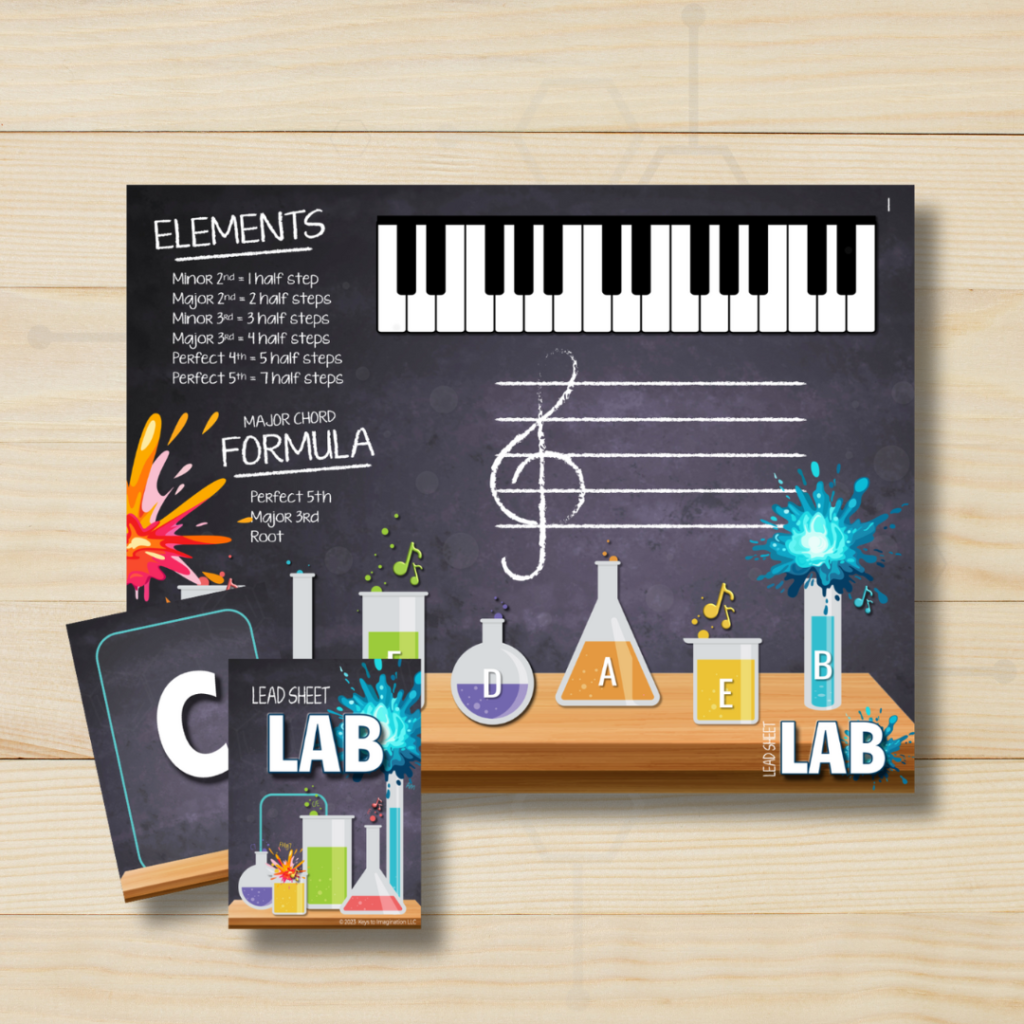
We are so excited about Keys to Imagination’s newest game, which will debut at the 2024 MTNA National Conference. Lead Sheet Lab takes students into the musical laboratory to learn the formulas and popular symbols used for reading chords. This information is so important for lead sheet and chord chart playing! If you aren’t already aware, Creative Piano Teacher has been working hard to create a lead sheet and chord chart book series specially designed for use with piano students. Pairing these two amazing products is an excellent way to boost your students’ learning of functional chord skills.
Final Thoughts
That’s a wrap on the best games we use in our piano studios, but here’s some food for thought. Some teachers tell us they don’t have time for games in their piano lessons. While we get it (lessons can be packed and limited on time), games are one of the best ways to help students experience concepts in many unique and stimulating ways; each activity works the brain differently, reinforcing and solidifying learning. Once something is learned well, it is not likely to be forgotten—saving us a lot of time in the future. The trick is thinking long-term instead of short-term. We have no choice but to make time for creative and engaging learning experiences that will pay off in the future!
We leave you with this quote:
“People rarely succeed unless they have fun in what they are doing.” –Dale Carnegie

A passionate music educator, presenter, and author, Davis spends his days empowering music students through creative teaching and music education resources. He is a frequent presenter at conferences and workshops across the nation and is co-author of the Easy Piano Lead Sheets and Chord Charts series. He currently lives in Cincinnati, Ohio.

